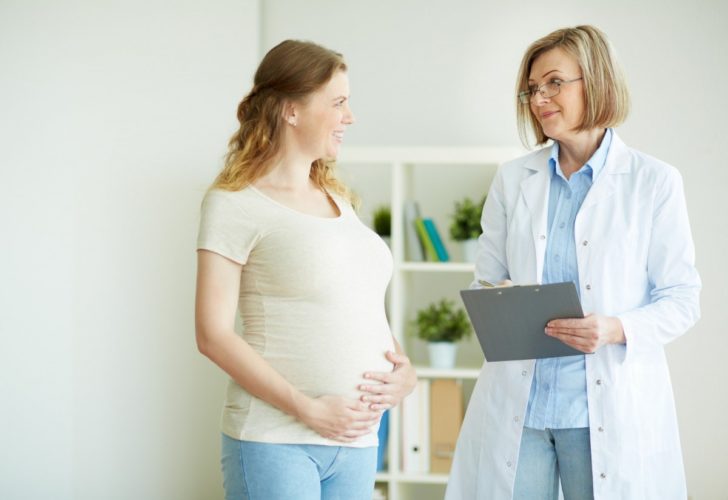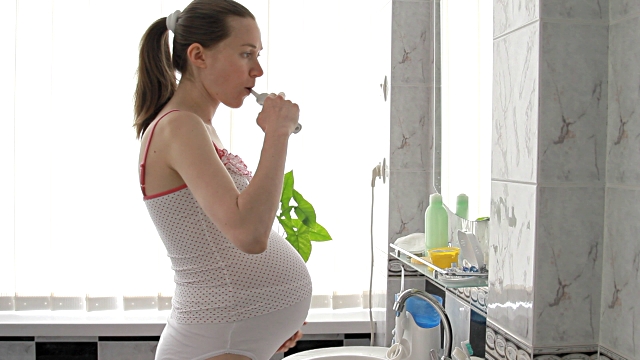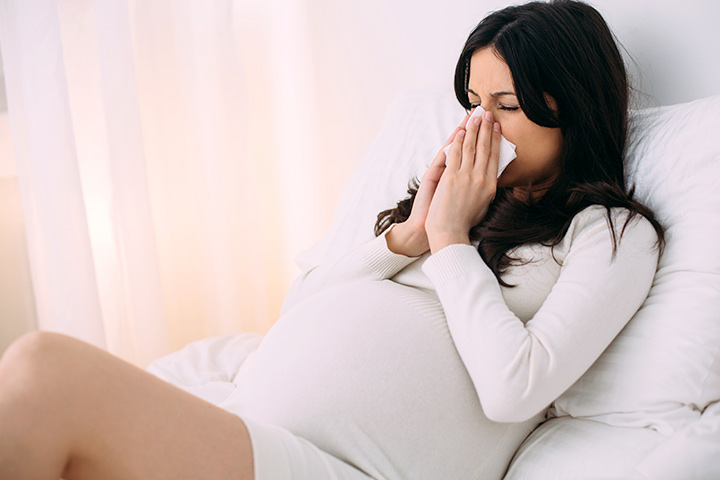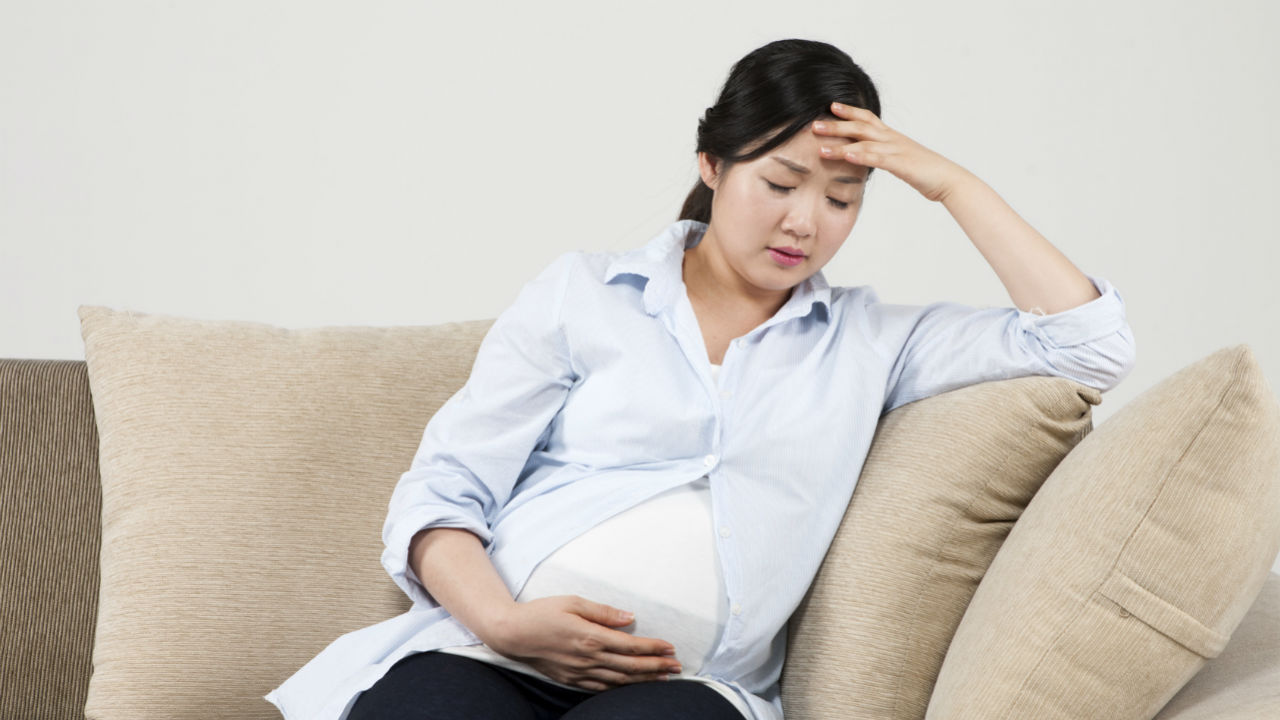
Morning sickness, vomiting, nausea, dizziness, increased appetite, etc. are some of the common symptoms of pregnancy. However, there are some other unusual signs that can exacerbate the concerns and qualms of an expecting mother. All these strange pregnancy signs are mainly because of the hormonal changes that happen in your body while you are pregnant. Nevertheless, you don’t have to get bothered about it because it is quite normal during the pregnancy period.

The changing levels of Oestrogen and Progesterone along with increased blood flow, make your gums swell. They begin to get bloated with blood and form deep pockets with soft, tender tissue. Apart from that, you will find your gums bleeding while flossing and brushing. Practising good oral hygiene is suggested during pregnancy. You need to brush your teeth after every meal and make sure that you use a good antibacterial mouthwash rinse to keep teeth and gums clean and strong. The best part is that all the disturbing dental issues subside and gets fixed quickly after delivery. Dentists suggest having your teeth cleaned two times during pregnancy.

Congested nose is also very normal during the pregnancy. The pregnancy hormones that raise the blood vessel supply throughout the body can also cause the tissues in the gums and nose hypersensitive. Consequently, you might have a bloody nose, and your spouse might complain of your heavy snores that disturb his sleep. As per the obstetricians, the inner lining of nose swells up, and the dryness gets intensified. This will be followed by depletion of area available for air circulation. The exact reason of the nasal changes is not understood. A nasal humidifier or nasal saline drops can aid you in lessening the discomfort. These distressing nasal symptoms fade after pregnancy.

It can be common to notice that you are more constipated than normal in the initial stages of pregnancy. This is because of the chemical (hormone) called progesterone which acts directly on the bowel, thus making it more relaxed and sluggish. The hormones of pregnancy would have sent the gastrointestinal tract in a spin. The unrefined pain of belching, burping and gas are also tad common. You can try to avoid offending foods, and it is also important to follow a healthy diet throughout the pregnancy. If you do become constipated, then you must double your fibre content and make sure you are drinking plenty of fluids, particularly water.

When you get pregnant, your uterus starts to expand with the growing baby and thus there will be pressure on large blood vessels thus making it hard for the blood to flow back to your lower extremities. Consequently, the blood can pool and form varicose veins in your legs and sometimes even in your vulva, which occurs in around 10 percent of women and can be quite annoying. If you want to prevent varicose veins, you should try not to gain more weight during pregnancy and make sure that you walk every day so as to increase your blood circulation. Spandex pants and pregnancy compression hose can assist varicose veins in the legs. After pregnancy, they may get better or get fixed. If they don’t, there are various treatments available to get it fixed. If you have varicose veins in your vulva, then you can still deliver vaginally, and they will fade off after pregnancy. In the meantime, ice packs can make them seem more comforting.

The hormones formed during the pregnancy period can darken your skin coloration. They raise the production of melanin, which is responsible for the darkening of the skin. Chloasma or mask of pregnancy is the appearance of a black or dark patch on forehead, nose or cheeks, which is more notable in dark-complexioned women. Freckles are quite normal in light or fair-complexioned ladies. Most of the spots vanish after delivery, without getting it treated. You may have heard about the pregnancy hormones which can cause acne and sun sensitivity, but you might not have heard that they can also cause skin tags. Skin tags are small “out pockets” or extra skin growths that show up in the pits or folds of the body such as the neck, the armpits and the groin and normally develop between the fourth and six months of pregnancy.

During pregnancy, your ankles and feet start to swell. This is one symptom that most of the women know. Many women also notice that their feet have grown after their pregnancy! The hormones tend to loosen the ligaments in the pelvis in order to enable the baby to come out, but it could have a lasting impact on the joints in your feet, letting them become bigger or wider. This impact could be temporary. LA-based ob-gyn Dr Suzanne Gilberg-Lenz says that a pregnant woman’s feet usually grows because of the influence of hormones, and also from the fluid retention, which is also quite normal. However, if it’s very fast and you haven’t been on your feet or sitting for a long time—where gravity will cause that inflammation—or if it occurs with a terrible headache or vision changes, you need to see your doctor as soon as possible. This could be a hypertension issue.
It is the most powerful creation to have life growing inside of you.There is no bigger gift